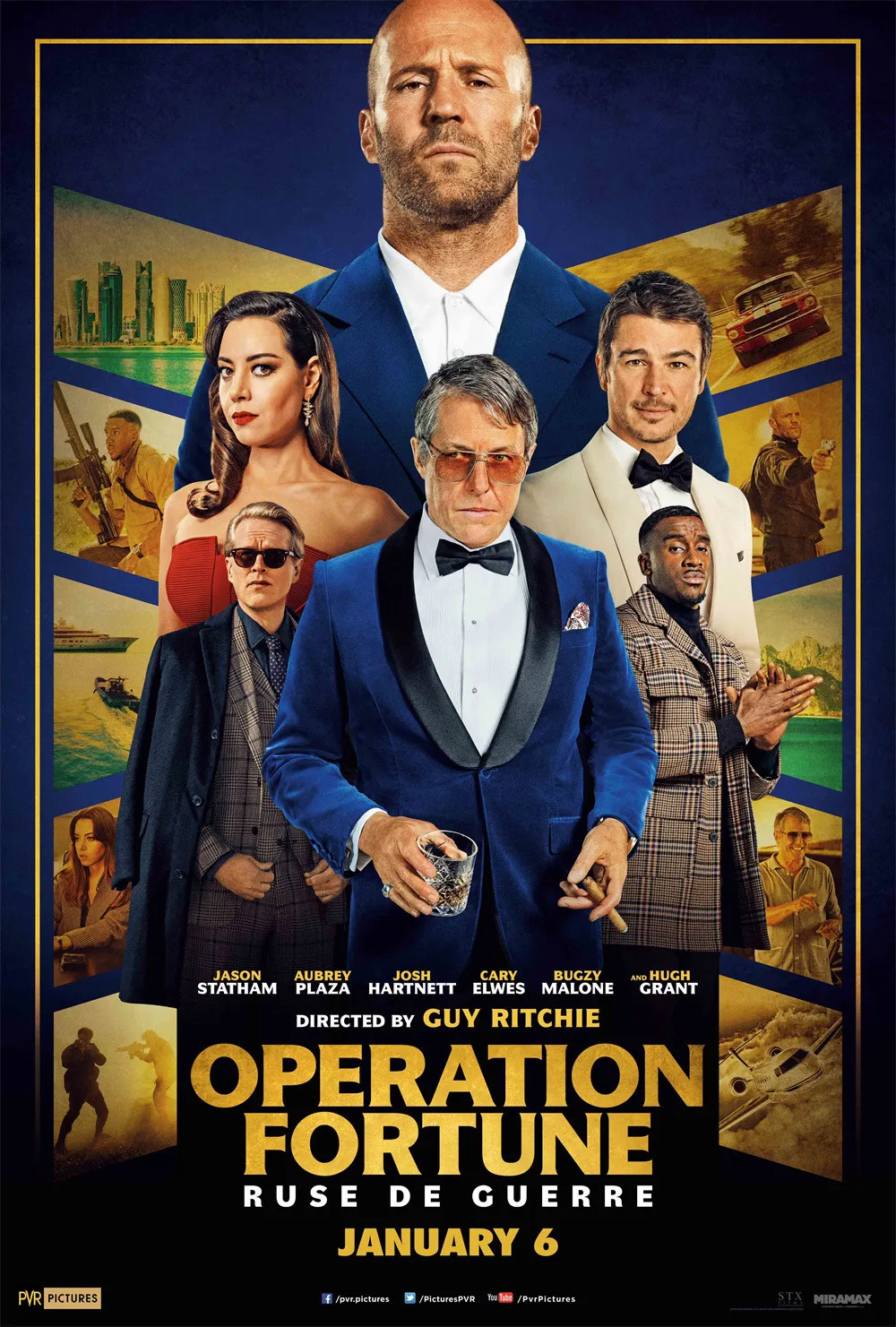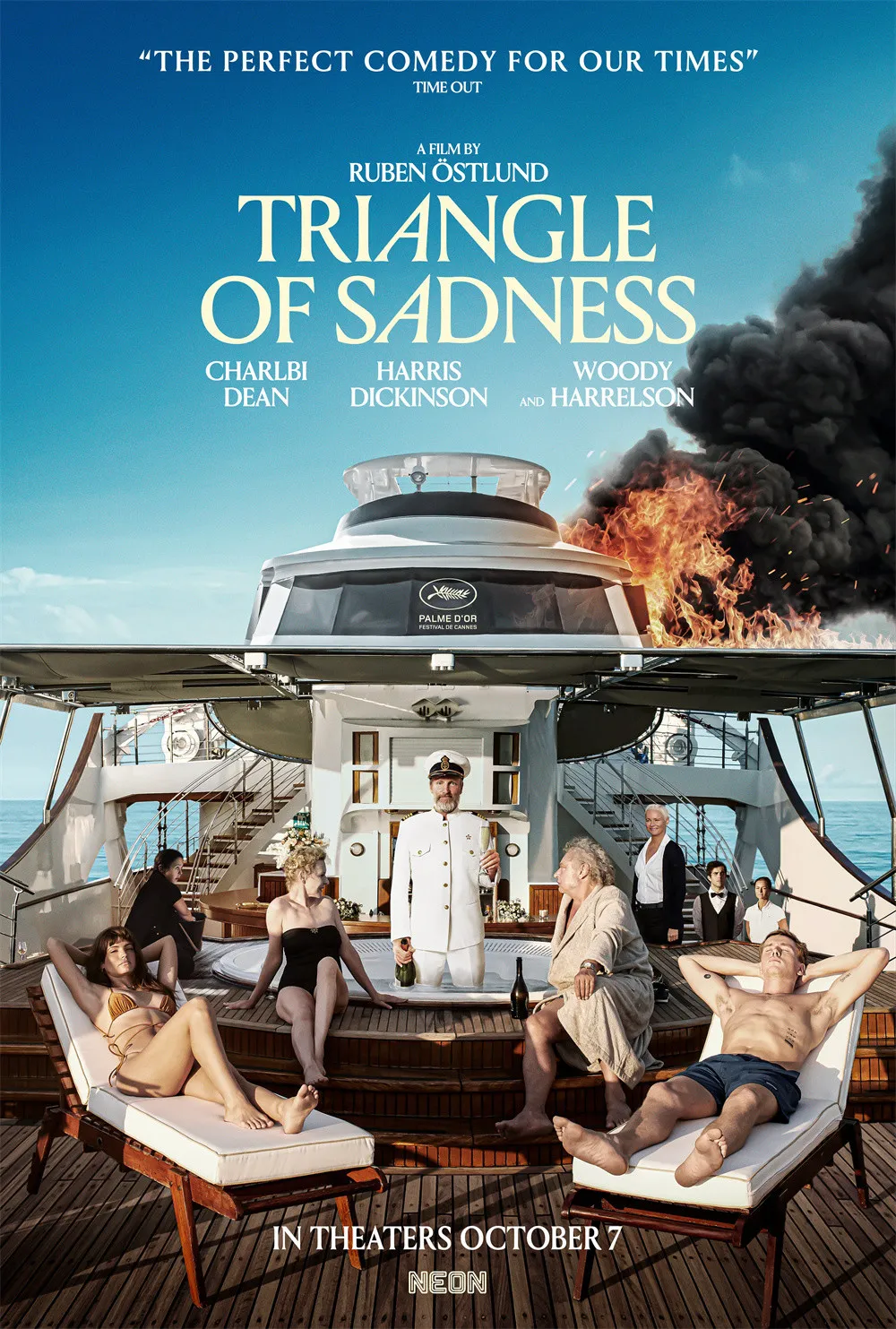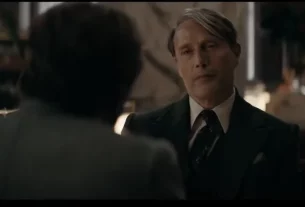In the past year, Hollywood has taken sanctions against the Russian film market for reasons that are well known.
Now, almost a year after the line, has the Russian cinema come to the brink of total collapse without super blockbusters? This is not the case.
Small and medium investment Hollywood movies dominate the market
Last year, with Disney, Warner, Universal, Sony and Paramount pulling out of the Russian market, originally scheduled hits such as ‘The Batman’, ‘Turning Red’, ‘Ambulance’, ‘Red Notice’ and ‘Morbius’, all announced their withdrawal, leaving the The Russian cinema industry has encountered another major challenge following the New Crown epidemic.
Last April and May, because of the lack of new films, many Russian cinemas even had to play old Soviet-era movies, and a few chose to take the risk of simply playing pirated Hollywood blockbusters.
However, Christopher Vourlias, a journalist for the American film and entertainment media ‘Variety’, recently published an article saying that according to the survey, the entire Russian movie box office in 2022 is actually down by only 20% compared to 2021.
If it is compared to 2019 before the epidemic, it does fall from $870 million to $350 million, a significant difference.
But then look at the number of films released, a staggering 729 in 2022, the most in Russian cinema history, and a significant number of them are from Hollywood.
According to the real-time data given by the Russian box office statistics agency, more than 140 American movies have been publicly released in Russia in the past year, and the number of imported movies that have been scheduled for this year has reached more than 130.
In other words, although Hollywood blockbusters have disappeared from the Russian film market, a variety of small and medium-sized non-major productions are still entering Russian cinemas in various ways.
While its box office results are by no means comparable to, say, a Marvel movie, at least it shows that there are still a number of Hollywood studios that seem to scream loud sanctions slogans on the surface but are still secretly working with the Russian film industry in private.
According to box office figures, the Russian box office was exceptionally strong in January this year, with the best single-month box office performance ever recorded.
In this regard, the new Russian film “Cheburashka” is the most important. After only ten days of its release, the film broke several box office records and became the top grossing film in Russian cinema history, creating a nationwide movie-going frenzy.
In addition, the imported films ‘Operation Fortune: Ruse de Guerre’ and ‘The Plane’ each received excellent box office results, contributing to the historical peak of the Russian box office in January.

Operation Fortune: Ruse de Guerre’ is directed by British director Guy Ritchie and stars Jason Statham, Hugh Grant, Aubrey Plaza and Josh Hartnett in the lead roles, taking the action plus comedy route that Guy Ritchie is known for.
In Northern America, ‘Operation Fortune: Ruse de Guerre’ is being distributed by Lionsgate and is scheduled for March 3 this year.
In overseas markets, distribution is handled by STX Entertainment. The film has been released in Europe, South America and Asia, including Russia, since January 4 this year.

Interestingly, according to the British ‘DailyMail’ report, ‘Operation Fortune: Ruse de Guerre’ was scheduled to be released last year, but was temporarily drawn up, because the story is set in a group of villains are Ukrainian nationals.
It was obviously not realistic to revert to remake, so the release of ‘Operation Fortune: Ruse de Guerre’ was delayed for a whole year. On January 12 of this year, the film was officially released in Russia and received excellent box office.
Also favored by Russian audiences was Gerard Butler’s latest masterpiece ‘The Plane’.
The film was distributed worldwide by Lionsgate, and its Russian release date was January 26, just two weeks later than in the U.S. mainland, in sync with the U.K., France, Italy, Ukraine and Brazil, which also turned out to be a good box office hit.

Last month, ‘Shotgun Wedding’, also from Lionsgate, was released in Russia on February 14, Valentine’s Day, and also received a very good box office result.
The film, led by Jennifer Lopez, did not enter theaters in the United States, and went directly to the online platform release.
Film companies each have room to operate
The ‘Variety’ reporter managed to contact both STX Entertainment and Lionsgate for an interview on why there are still Hollywood companies placing new films in the Russian market, but both met with a soft “no comment”.
However, according to sources familiar with the relevant business, matters involving overseas distribution cooperation of movies are often laid out long in advance and a package deal is signed.
So I’m afraid that these two companies are still arranging for their works to enter the Russian market, out of necessity, just to complete the previous agreements as they should.
The problem, however, is that STX Entertainment and Lionsgate are not the only two Hollywood productions that have entered Russian theaters in the past year.
Even after the Western film industry launched a boycott against Russia, new distribution deals continued to be signed.
In this regard, a Northern America distributor, who wished to remain anonymous, told ‘Variety’ that in principle, they do not deal with “Russian entities”, but once the film rights are sold to third-party platforms from other countries and regions, they have no say in whether they will take it back to Russian theaters afterwards. But once the film rights are sold to third-party platforms from other countries and regions, they have no right to ask whether the other party will take them to Russian cinemas afterwards.
Three Thousand Years of Longing’, directed by George Miller and Tilda Swinton, had its world premiere in Cannes last May and was released in the U.S. at the end of August, but it did not do well at the box office; on the contrary, it got $4.3 million at the Russian box office after its release in September.
The film is co-produced by MGM and FilmNation Entertainment, and a spokesman for the latter said in an interview with ‘Variety’ that the rules of their company are that it is up to the producers to decide whether their work is released in a particular country or not.
In other words, it was director George Miller, who also produced the film, who agreed to get ‘Three Thousand Years of Longing’ into Russian theaters.
In addition, ‘Triangle of Sadness’, which won the Palme d’Or in Cannes last year, was also introduced by the Russian independent distributor A-One in December last year and was released in the art house cinemas in some Russian cities, also achieving good box office results.
According to the production practice of European literary films, as many as twenty film companies participated in the investment and production of ‘Triangle of Sadness’, and the distribution tasks around the world were also awarded to different companies, and a few British and American film institutions, including BBC Pictures, were certainly involved.
But it is also clear that it is not up to one or two companies to decide whether or not to exclude them from distribution in Russia.

Moreover, while the past year has seen a slew of sanctions against Russian companies in Europe and the United States, Hollywood studios are not breaking the law by continuing to do business with Russian entities that have not been specifically sanctioned.
In particular, a large number of Russian movie theaters and distribution companies are actually private enterprises and not state-run, which leaves room for further cooperation with these Western film companies.
Record high of French films released in Russia
The imported films released in Russia last year, in addition to Hollywood films, were actually not lacking in French production.
According to statistics, a record number of 87 French films were screened in Russia last year, resulting in 2.55 million viewers.
Compared to Germany’s 2.82 million and Poland’s 2.64 million, there is not much difference, ranking third in the world’s most watched French movies, ahead of Italy and Spain.
Historically, Russian audiences have always loved French cinema, being the largest overseas market for French films in 2020 and ranking second in both 2019 and 2021, and even if they fell to third place last year, they still brought in nearly 9 million euros for the French film industry.
Among them, commercial films such as ‘Arthur, malédiction’, ‘Menteur’, ‘Chickenhare and the Hamster of Darkness’, ‘Fireheart’ and ‘Le loup et le lion’ are the most popular.
For this reason, although Unifrance, with its government background, did not issue official invitations to Russian filmmakers at its annual “Rendezvous in Paris” film market event held in mid-January this year, more than a dozen French film makers themselves joined forces and invited 12 key members of Russian film distribution Unifrance also chose to turn a blind eye to this, stressing that as long as the other party had not made inappropriate public statements.
“We did not extend an invitation to them in the traditional sense, but we said they could come to screenings and marketing events as long as they were in Paris.”
Gilles Renouard, Unifrance’s film director, publicly stated, “Russia has been an important market for French cinema for the past few years, consistently ranking in the top three, and we believe this is a long-term relationship that will not be halted by the current conflict.”
And Daniela Elstner, executive director of the association, added that Unifrance’s raison d’être is to try to promote French cinema abroad, and that cinema is an important channel for transmitting abroad the values of democracy, solidarity and tolerance.
Of course, this approach of the French film industry also attracted a lot of criticism from the British and American media, but the participating French film makers almost unanimously said that art knows no borders and should not be boycotted.
A ban on the sale of films to Russian distributors would only harm the average Russian viewer who loves cinema, as well as the French film industry and filmmakers in general.
In April this year, Baekyo Film’s mega-budgeted costume action blockbuster ‘The Three Musketeers’ is coming to screens around the world, and Russia is on the list.



